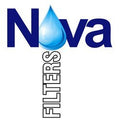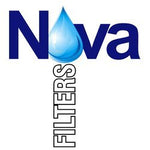How to Choose the Best Carbon Filtration
About Carbon
Carbons made from different raw materials possess vastly different pore size ranges, which lend themselves toward certain applications. Carbon can be made in many different ways and each type is best suited to a different application. Choosing the correct type can make a difference in carbon’s lifespan and system effectiveness. Carbon is very effective at removing many contaminants, including the following:
- Residual chlorine and monochloramine
- Taste and odor causing organic contaminants
- Volatile organic compounds (VOCs)
- Trihalomethanes (THMs) and other halocarbons
- Endocrine disrupting compounds (pharmaceuticals, personal care products, etc.)
- Chloramine, hydrogen sulfide and hydrogen peroxide (removed by catalytic carbons)
Carbon must not be sediment filter, it is best for it to act only as an adsorbent for dissolved organics, not the filtration of solids. When a system doesn't pre-filter sediments the carbon gets coated with the sediment in so doing there is no longer direct contact of the carbon and water without contact it will not work effectually.

The carbon is on the left in this pic, observe how clean it is because the other two cartridges have removed the sediment before hand. Dramatically improving its service life.
This is why single carbon filters or canisters just don't work efficiently they get clogged up with sediment.
We use two sediments in the Nova Whole House filter before our carbon, our carbon can only absorb so many contaminants before losing it’s effectiveness and its adsorption efficiency. This happens when the pore structure of the carbon is so full that it cannot adsorb any more impurities. At 26,000 gallons, the carbon is typically deemed spent, and would need to be replaced.
We recommend carbon remain in drinking water filtration system for more than 12 months. Interesting to note that carbon left unchanged in aquariums will have a detrimental effect on live aquaria.
There is more than one company selling carbon tank filters claiming they will last 5 years I cringe when I see this here’s why.
Carbon filters in water filters have a limited ability to adsorb contaminants from water, and so the carbon filter in water purifiers should be changed when it has been depleted and cannot purify water anymore.
At this stage the carbon will start rejecting some of the previously adsorbed pollutants back into the water flowing over it. This is called ‘breakthrough’. When this happens, the concentration of pollutants in the treated water will be higher than in the raw water being treated.
We use the best activated coconut hay carbon in our Nova water purification system this proprietary aquarium grade carbon has the highest iodine rating available is the microporous type and they are best for removal of chlorine and it's by-products called TTHM's and volatile organic compounds or VOCs in water. We have test results from an independent laboratory taken from homes in The Villages that clearly demonstrate this.
Nova high grade carbon in not available anywhere online or in retail stores except from us, there are lesser quality carbons on the market at a lower cost but why not have the best for the heath and well being of you and your family. Currently costing about $60.

